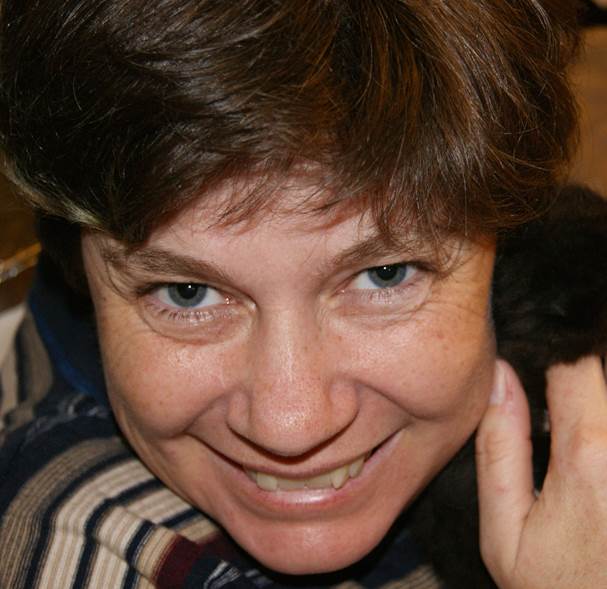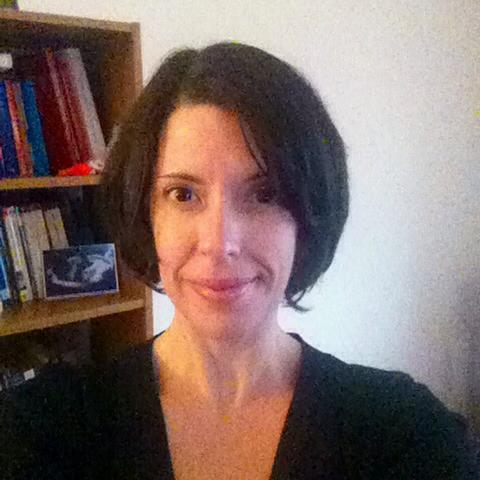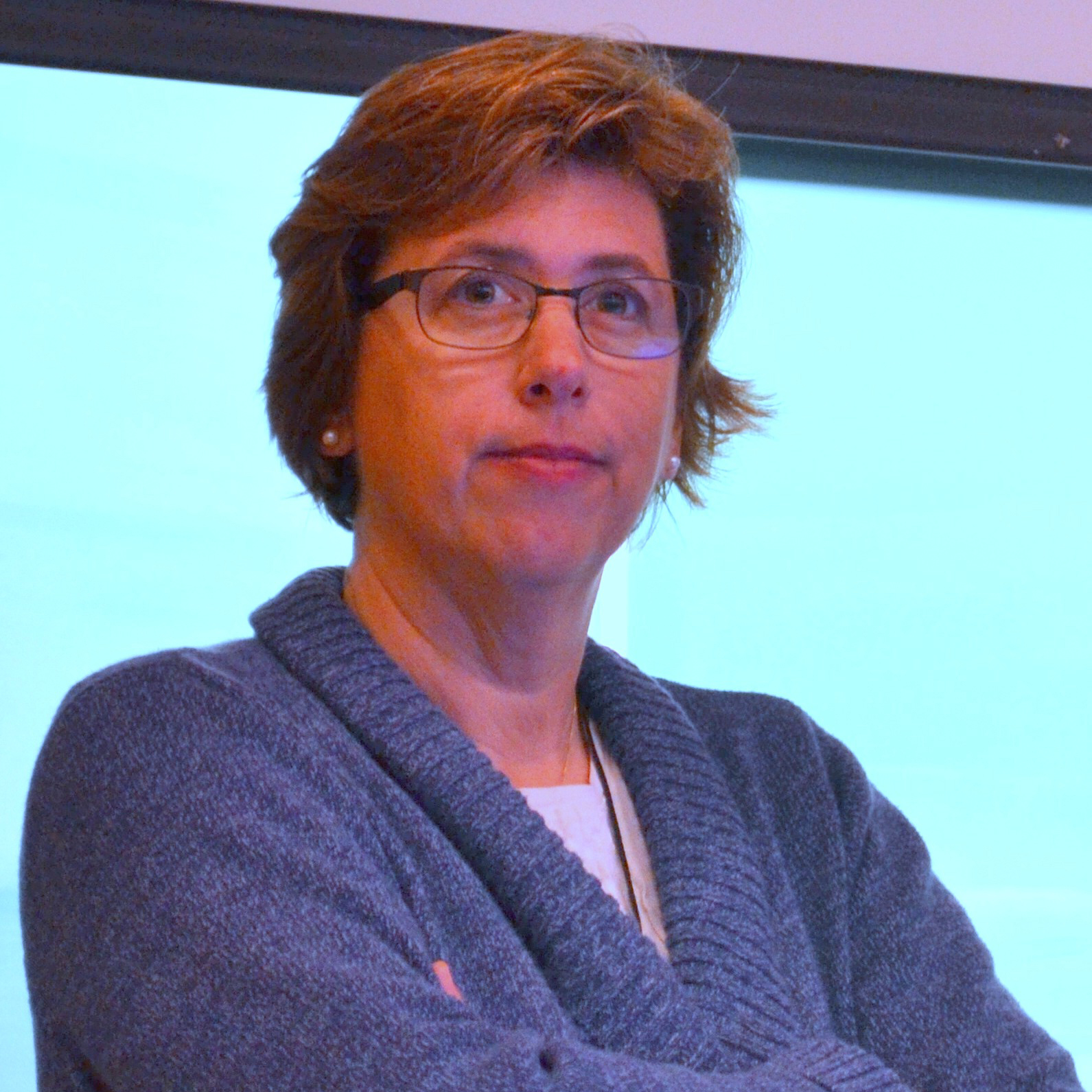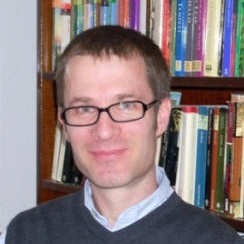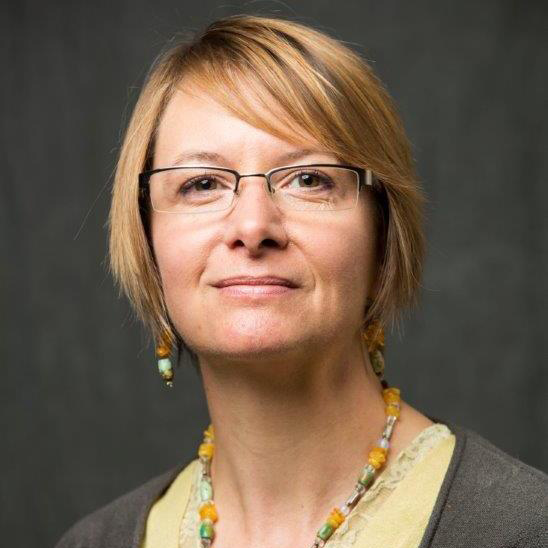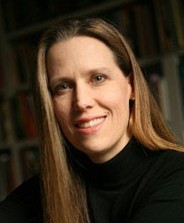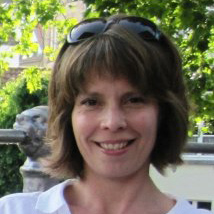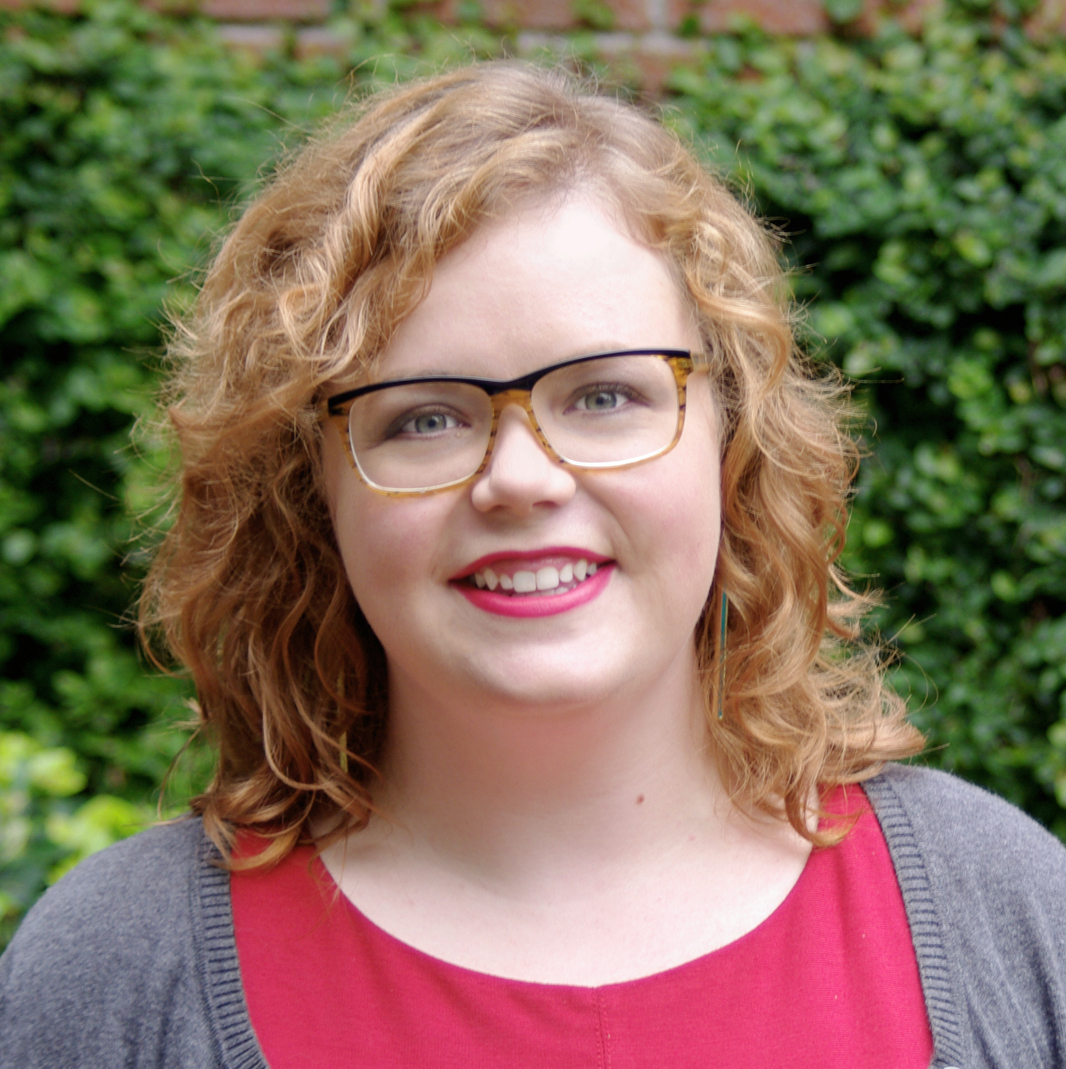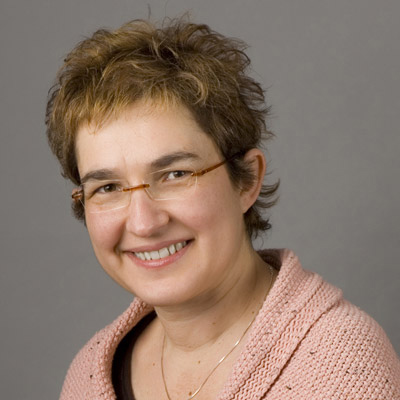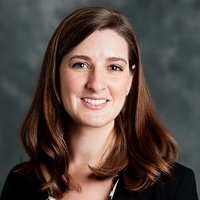New Models for Mobilizing Undergraduate Research
This document is currently in draft. When it has been reviewed and proofed, it will
be
published on the site.
Please note that it is not of publishable quality yet.
New Models for Mobilizing Undergraduate Research SAA 2015 Workshop 59
¶Workshop Leaders
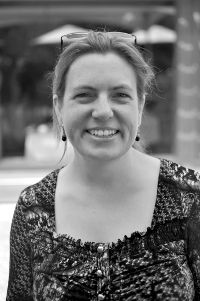
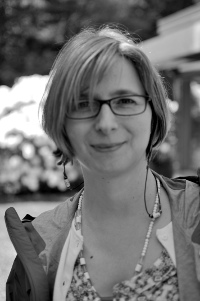
¶Introduction
Over the 2014-2015 academic year, we used this page to aggregate all materials for
SAA workshop 59. This page is a permanent record of our work together. The page offers a model for
future SAA workshop organizers and a link for participants to include in their teaching
dossiers. You’ll find information about the participants and assignments, the text of some emails to our participants (under News/ Reminders/Announcements), a bibliography, and participants’ written contributions.
¶Workshop Description from SAA Bulletin
With the massive increase of online tools, archives, and digital library collections,
undergraduates now have the resources to do original research. How can Shakespeareans
and early modernists make space for that to happen in the classroom? The Map of Early Modern London’s pedagogical partnerships provide instructors with materials, students with real-world
publication opportunities, and burgeoning digital projects with scholarly content.
In this workshop, participants will develop ways of incorporating Research-Based Learning
approaches into their teaching and discover new models for engaging students in research.
¶Additional Context
In its 1998 blueprint, the Boyer Commission (convened in 1995) recommended that all
R1 (research/doctoral) universities1 make Research-Based Learning their standard pedagogical model. In RBL,
learning is based on discovery guided by mentoring rather than on the transmission of information. Inherent in inquiry-based learning is an element of reciprocity: faculty can learn from students as students are learning from faculty(Boyer 15). One of the commission’s recommendations was to
Use Information Technology Creatively:
Because research universities create technological innovations, their students should have the best opportunities to learn state-of-the-art practices—and learn to ask questions that stretch the uses of the technology(Boyer 25).
Nearly twenty years on, the possibilities for students to learn state-of-the-art research
practices are not limited to R1 universities. Thanks to subscription databases and
open-access resources, almost all students have at their disposal the primary materials
and tools to undertake original research. Thanks to pedagogical partnerships and Digital
Humanities pedagogies, we can publish that original research, thus completing the
students’ formation as scholars. At MoEML, we have asked two questions: (1) how can we bring this R1 RBL model into non-R1
institutions? and (2) how can we mobilize the scholarly capacities of students to
help build better open-access projects that in turn facilitate further RBL opportunities?
We believe this model is extensible into other literary periods, suitable for a variety
of disciplines, adaptable to a variety of classroom settings, and achievable by other
projects.
¶Our Goal for Participants
You will walk away from this experience with a working pedagogical model that you
can apply either to a MoEML Pedagogical Partnership or to another collaborative research/teaching venture.
¶Workshop Participants
¶Dates and Assignments
-
October-November 2014. Complete the readings for this workshop.
-
1 December 2014. Send us a brief description of your intended contribution.
-
30 January 2014. Send us your written contribution.
-
4 April 2015. 4-6 pm. Workshop 59 meets in person!
¶Assignments
¶Assignment 1: Readings
At your leisure, please peruse the following articles and webpages.
-
Background Readings
-
The Boyer Commission on Educating Undergraduates in the Research University. Reinventing Undergraduate Education: A Blueprint for America’s Research Universities. (See also a handy summary of the report here.)
-
Brew, Angela, and Evan Jewell.
Enhancing Quality Learning Through Experiences of Research-Based Learning: Implications for Academic Development.
International Journal for Academic Development 17.1 (2012): 47-58. DOI: 10.1080/1360144X.2011.586461. If this article is not available through your university library’s journal subscriptions, email us. -
Saklofske, Jon, Estelle Clements, and Richard Cunningham.
They Have Come, Why Won’t We Build It? On the Digital Future of the Humanities.
Digital Humanities Pedagogy: Practices, Principles and Politics. Ed. Brett D. Hirsch. Cambridge, UK: Open Book Publishers, 2012. 311-30 (print) or 332-51 (digital).
-
-
MoEML’s Pedagogical Partnership and Related Pages
-
McLean-Fiander and Jenstad.
Pedagogical Partnership Project.
-
Jenstad.
Contribute to MoEML.
-
Jenstad and McLean-Fiander.
Types of Contribution.
-
Jenstad and Butt.
Prepare your Encyclopedia Article.
-
McLean-Fiander and Jenstad.
Welcome Package.
-
Jenstad, McLean-Fiander, and Milligan.
A Guide for Student Researchers of the Streets, Sites, and Playhouses of Early Modern London.
-
-
Sample Outputs by Pedagogical Partners
-
Course Syllabi by current and past MoEML Pedagogical Partners.
-
UVU English 463R Spring 2014 Students.
The Curtain Playhouse.
Ed. Kate McPherson. Forthcoming.
-
¶Assignment 2: Brief Description
Due: Monday, 1 December 2014. Send us a brief description of your proposed written contribution. Contributions might take
a number of forms and therefore may be of varying lengths. We suggest some possibilities
below, but please feel free to seize this opportunity to create something that meets
your current pedagogical and scholarly needs.
-
Suggestions for current or past MoEML Pedagogical Partners
-
Specific advice for future MoEML Pedagogical Partners or other adherents to this pedagogical model.
-
Description of your experience as a MoEML Pedagogical Partner. Imagined audience: readers of the MoEML Blog. Possible questions to consider:
-
How did you incorporate the MoEML module into your course?
-
What was your role as MoEML
Guest Editor
? -
What worked and what didn’t? What you would do differently next time?
-
How did the students respond? What did they derive from their RBL opportunity that they wouldn’t have derived from a traditional learning situation? Did (or how did) the high-stakes publication opportunity with MoEML change the experience of RBL (if you’ve done RBL and/or research-intensive exercises before)?
-
What were the challenges and teachable moments involved in groupwork, managing workflow, assessing the contributions, dealing with uneven student abilities and skills, etc?
-
How did your institution respond to your participation?
-
-
Write a
how-to document
for distribution to future MoEML Pedagogical Partners (and publication on MoEML site). Ideas:-
How to assess collaboratively written projects, with potential sample rubrics.
-
How to create groups and apportion the responsibilities.
-
Research Tips. Getting the most out of [name of research tool or resource here].
-
Tech Tips. Eg., how to run a successful Skype or videoconference session.
-
How to deal with varying levels of student engagement, preparation, skills, and abilities.
-
-
-
Suggestions for prospective MoEML Pedagogical Partners
-
Prepare a syllabus and assignment rubric for a MoEML Module in one of your courses.
-
Describe how you would incorporate a MoEML Module in one of your courses. How would you prepare your students to do the research required? How might you get the library involved? What resources are available at your institution? On the internet? Are there any archival or rare materials at your institution that would enliven the experience?
-
-
Suggestions for Participants who want to create an RBL Module
-
Write a proposal for a collaboration with another digital project of your own choosing.
-
Write a proposal and plan to engage students at other universities in your own project (as we have done at MoEML).
-
-
General Suggestions
-
Write a pitch to present to your home institution (e.g., a grant application to your campus teaching and learning centre, a course proposal for your home department).
-
Reflect on RBL pedagogy generally or in your classroom in particular.
-
Write about an RBL exercise you’ve done or would like to do.
-
Respond to the readings by Brew and Jewell and/or by Saklofske, Clements, and Cunningham.
-
Write a position paper on institutional barriers, opportunities, and expectations.
-
Write a position paper on peer reviewing the products of RBL. Who should peer review students’ work and how?
-
¶Assignment 3: Written Contribution
Due: Friday, 30 January, 2015. Send us your contribution as a .pdf file.
¶Assignment 4: Interactions
At SAA Meeting.
Contributions
¶Participants’ Submissions
We include here contributions our participants gave us permission to publish after
the workshop
-
Michael McClintock Submission. Syllabus and Module (.pdf file).
-
Kate McPherson Submission. Partnership Observations (.pdf file).
-
Kathryn Moncrief Submission. Assignment (.pdf file).
-
Kristiane Stapleton Submission. Syllabus (.pdf file).
-
Katy Stavreva Submission. Assignment (.pdf file).
-
Donna Woodford-Gormley Submission. Syllabus (.pdf file).
¶Workshop Order of Proceeding
Notes
- The Boyer Commission’s Blueprint uses the designation R1, a now-deprecated category in the Carnegie Classification of Institutions of Higher Education. There is no single equivalent term in the new ontology, which is more granular and less value-laden. We will use the still-popular R1 designation for polemical purposes.↑
Cite this page
MLA citation
, and .
New Models for Mobilizing Undergraduate Research.The Map of Early Modern London, edited by , U of Victoria, 26 Jun. 2020, mapoflondon.uvic.ca/saa_2015.htm.
Chicago citation
, and .
New Models for Mobilizing Undergraduate Research.The Map of Early Modern London. Ed. . Victoria: University of Victoria. Accessed June 26, 2020. https://mapoflondon.uvic.ca/saa_2015.htm.
APA citation
, & 2020. New Models for Mobilizing Undergraduate Research. In (Ed), The Map of Early Modern London. Victoria: University of Victoria. Retrieved from https://mapoflondon.uvic.ca/saa_2015.htm.
RIS file (for RefMan, EndNote etc.)
Provider: University of Victoria Database: The Map of Early Modern London Content: text/plain; charset="utf-8" TY - ELEC A1 - Jenstad, Janelle A1 - McLean-Fiander, Kim ED - Jenstad, Janelle T1 - New Models for Mobilizing Undergraduate Research T2 - The Map of Early Modern London PY - 2020 DA - 2020/06/26 CY - Victoria PB - University of Victoria LA - English UR - https://mapoflondon.uvic.ca/saa_2015.htm UR - https://mapoflondon.uvic.ca/xml/standalone/saa_2015.xml ER -
RefWorks
RT Web Page SR Electronic(1) A1 Jenstad, Janelle A1 McLean-Fiander, Kim A6 Jenstad, Janelle T1 New Models for Mobilizing Undergraduate Research T2 The Map of Early Modern London WP 2020 FD 2020/06/26 RD 2020/06/26 PP Victoria PB University of Victoria LA English OL English LK https://mapoflondon.uvic.ca/saa_2015.htm
TEI citation
<bibl type="mla"><author><name ref="#JENS1"><surname>Jenstad</surname>, <forename>Janelle</forename></name></author>,
and <author><name ref="#MCFI1"><forename>Kim</forename> <surname>McLean-Fiander</surname></name></author>.
<title level="a">New Models for Mobilizing Undergraduate Research</title>. <title
level="m">The Map of Early Modern London</title>, edited by <editor><name ref="#JENS1"><forename>Janelle</forename>
<surname>Jenstad</surname></name></editor>, <publisher>U of Victoria</publisher>,
<date when="2020-06-26">26 Jun. 2020</date>, <ref target="https://mapoflondon.uvic.ca/saa_2015.htm">mapoflondon.uvic.ca/saa_2015.htm</ref>.</bibl>
Personography
-
Joey Takeda
JT
Programmer, 2018-present. Junior Programmer, 2015-2017. Research Assistant, 2014-2017. Joey Takeda was a graduate student at the University of British Columbia in the Department of English (Science and Technology research stream). He completed his BA honours in English (with a minor in Women’s Studies) at the University of Victoria in 2016. His primary research interests included diasporic and indigenous Canadian and American literature, critical theory, cultural studies, and the digital humanities.Roles played in the project
-
Abstract Author
-
Author
-
Author of Abstract
-
Author of Introduction
-
Author of Stub
-
CSS Editor
-
Compiler
-
Conceptor
-
Copy Editor
-
Copy Editor and Revisor
-
Data Manager
-
Date Encoder
-
Editor
-
Encoder
-
Encoder (Bibliography)
-
Geographic Information Specialist
-
Geographic Information Specialist (Agas)
-
Junior Programmer
-
Markup Editor
-
Metadata Co-Architect
-
MoEML Encoder
-
MoEML Transcriber
-
Post-conversion processing and markup correction
-
Programmer
-
Proofreader
-
Researcher
-
Second Author
-
Toponymist
-
Transcriber
-
Transcription Editor
Contributions by this author
Joey Takeda is a member of the following organizations and/or groups:
Joey Takeda is mentioned in the following documents:
-
-
Katie Tanigawa
KT
Project Manager, 2015-2019. Katie Tanigawa was a doctoral candidate at the University of Victoria. Her dissertation focused on representations of poverty in Irish modernist literature. Her additional research interests included geospatial analyses of modernist texts and digital humanities approaches to teaching and analyzing literature.Roles played in the project
-
Author
-
Conceptor
-
Encoder
-
GIS Specialist
-
Managing Editor
-
Markup Editor
-
Name Encoder
-
Project Manager
-
Proofreader
-
Second Author
-
Transcription Proofreader
Contributions by this author
Katie Tanigawa is a member of the following organizations and/or groups:
Katie Tanigawa is mentioned in the following documents:
-
-
Tye Landels-Gruenewald
TLG
Data Manager, 2015-2016. Research Assistant, 2013-2015. Tye completed his undergraduate honours degree in English at the University of Victoria in 2015.Roles played in the project
-
Author
-
Author of Term Descriptions
-
CSS Editor
-
Compiler
-
Conceptor
-
Copy Editor
-
Data Manager
-
Editor
-
Encoder
-
Geographic Information Specialist
-
Markup Editor
-
Metadata Architect
-
MoEML Researcher
-
Name Encoder
-
Proofreader
-
Researcher
-
Toponymist
-
Transcriber
Contributions by this author
Tye Landels-Gruenewald is a member of the following organizations and/or groups:
Tye Landels-Gruenewald is mentioned in the following documents:
-
-
Kim McLean-Fiander
KMF
Director of Pedagogy and Outreach, 2015–present. Associate Project Director, 2015–present. Assistant Project Director, 2013-2014. MoEML Research Fellow, 2013. Kim McLean-Fiander comes to The Map of Early Modern London from the Cultures of Knowledge digital humanities project at the University of Oxford, where she was the editor of Early Modern Letters Online, an open-access union catalogue and editorial interface for correspondence from the sixteenth to eighteenth centuries. She is currently Co-Director of a sister project to EMLO called Women’s Early Modern Letters Online (WEMLO). In the past, she held an internship with the curator of manuscripts at the Folger Shakespeare Library, completed a doctorate at Oxford on paratext and early modern women writers, and worked a number of years for the Bodleian Libraries and as a freelance editor. She has a passion for rare books and manuscripts as social and material artifacts, and is interested in the development of digital resources that will improve access to these materials while ensuring their ongoing preservation and conservation. An avid traveler, Kim has always loved both London and maps, and so is particularly delighted to be able to bring her early modern scholarly expertise to bear on the MoEML project.Roles played in the project
-
Associate Project Director
-
Author
-
Author of MoEML Introduction
-
CSS Editor
-
Compiler
-
Contributor
-
Copy Editor
-
Data Contributor
-
Data Manager
-
Director of Pedagogy and Outreach
-
Editor
-
Encoder
-
Encoder (People)
-
Geographic Information Specialist
-
JCURA Co-Supervisor
-
Managing Editor
-
Markup Editor
-
Metadata Architect
-
Metadata Co-Architect
-
MoEML Research Fellow
-
MoEML Transcriber
-
Proofreader
-
Second Author
-
Secondary Author
-
Secondary Editor
-
Toponymist
-
Vetter
Contributions by this author
Kim McLean-Fiander is a member of the following organizations and/or groups:
Kim McLean-Fiander is mentioned in the following documents:
-
-
Janelle Jenstad
JJ
Janelle Jenstad is Associate Professor of English at the University of Victoria, Director of The Map of Early Modern London, and PI of Linked Early Modern Drama Online. She has taught at Queen’s University, the Summer Academy at the Stratford Festival, the University of Windsor, and the University of Victoria. With Jennifer Roberts-Smith and Mark Kaethler, she co-edited Shakespeare’s Language in Digital Media (Routledge). She has prepared a documentary edition of John Stow’s A Survey of London (1598 text) for MoEML and is currently editing The Merchant of Venice (with Stephen Wittek) and Heywood’s 2 If You Know Not Me You Know Nobody for DRE. Her articles have appeared in Digital Humanities Quarterly, Renaissance and Reformation,Journal of Medieval and Early Modern Studies, Early Modern Literary Studies, Elizabethan Theatre, Shakespeare Bulletin: A Journal of Performance Criticism, and The Silver Society Journal. Her book chapters have appeared (or will appear) in Institutional Culture in Early Modern Society (Brill, 2004), Shakespeare, Language and the Stage, The Fifth Wall: Approaches to Shakespeare from Criticism, Performance and Theatre Studies (Arden/Thomson Learning, 2005), Approaches to Teaching Othello (Modern Language Association, 2005), Performing Maternity in Early Modern England (Ashgate, 2007), New Directions in the Geohumanities: Art, Text, and History at the Edge of Place (Routledge, 2011), Early Modern Studies and the Digital Turn (Iter, 2016), Teaching Early Modern English Literature from the Archives (MLA, 2015), Placing Names: Enriching and Integrating Gazetteers (Indiana, 2016), Making Things and Drawing Boundaries (Minnesota, 2017), and Rethinking Shakespeare’s Source Study: Audiences, Authors, and Digital Technologies (Routledge, 2018).Roles played in the project
-
Annotator
-
Author
-
Author of Abstract
-
Author of Stub
-
Author of Term Descriptions
-
Author of Textual Introduction
-
Compiler
-
Conceptor
-
Copy Editor
-
Copyeditor
-
Course Instructor
-
Course Supervisor
-
Course supervisor
-
Data Manager
-
Editor
-
Encoder
-
Encoder (Structure and Toponyms)
-
Final Markup Editor
-
GIS Specialist
-
Geographic Information Specialist
-
Geographic Information Specialist (Modern)
-
Geographical Information Specialist
-
JCURA Co-Supervisor
-
Main Transcriber
-
Markup Editor
-
Metadata Co-Architect
-
MoEML Project Director
-
MoEML Transcriber
-
Name Encoder
-
Peer Reviewer
-
Primary Author
-
Project Director
-
Proofreader
-
Researcher
-
Reviser
-
Revising Author
-
Second Author
-
Second Encoder
-
Toponymist
-
Transcriber
-
Transcription Proofreader
-
Vetter
Contributions by this author
Janelle Jenstad is a member of the following organizations and/or groups:
Janelle Jenstad is mentioned in the following documents:
Janelle Jenstad authored or edited the following items in MoEML’s bibliography:
-
Jenstad, Janelle.
Building a Gazetteer for Early Modern London, 1550-1650.
Placing Names. Ed. Merrick Lex Berman, Ruth Mostern, and Humphrey Southall. Bloomington and Indianapolis: Indiana UP, 2016. 129-145. -
Jenstad, Janelle.
The Burse and the Merchant’s Purse: Coin, Credit, and the Nation in Heywood’s 2 If You Know Not Me You Know Nobody.
The Elizabethan Theatre XV. Ed. C.E. McGee and A.L. Magnusson. Toronto: P.D. Meany, 2002. 181–202. Print. -
Jenstad, Janelle.
Early Modern Literary Studies 8.2 (2002): 5.1–26..The City Cannot Hold You
: Social Conversion in the Goldsmith’s Shop. -
Jenstad, Janelle.
The Silver Society Journal 10 (1998): 40–43.The Gouldesmythes Storehowse
: Early Evidence for Specialisation. -
Jenstad, Janelle.
Lying-in Like a Countess: The Lisle Letters, the Cecil Family, and A Chaste Maid in Cheapside.
Journal of Medieval and Early Modern Studies 34 (2004): 373–403. doi:10.1215/10829636–34–2–373. -
Jenstad, Janelle.
Public Glory, Private Gilt: The Goldsmiths’ Company and the Spectacle of Punishment.
Institutional Culture in Early Modern Society. Ed. Anne Goldgar and Robert Frost. Leiden: Brill, 2004. 191–217. Print. -
Jenstad, Janelle.
Smock Secrets: Birth and Women’s Mysteries on the Early Modern Stage.
Performing Maternity in Early Modern England. Ed. Katherine Moncrief and Kathryn McPherson. Aldershot: Ashgate, 2007. 87–99. Print. -
Jenstad, Janelle.
Using Early Modern Maps in Literary Studies: Views and Caveats from London.
GeoHumanities: Art, History, Text at the Edge of Place. Ed. Michael Dear, James Ketchum, Sarah Luria, and Doug Richardson. London: Routledge, 2011. Print. -
Jenstad, Janelle.
Versioning John Stow’s A Survey of London, or, What’s New in 1618 and 1633?.
Janelle Jenstad Blog. https://janellejenstad.com/2013/03/20/versioning-john-stows-a-survey-of-london-or-whats-new-in-1618-and-1633/. -
Shakespeare, William. The Merchant of Venice. Ed. Janelle Jenstad. Internet Shakespeare Editions. Open.
-
Stow, John. A SVRVAY OF LONDON. Contayning the Originall, Antiquity, Increase, Moderne estate, and description of that Citie, written in the yeare 1598. by Iohn Stow Citizen of London. Also an Apologie (or defence) against the opinion of some men, concerning that Citie, the greatnesse thereof. With an Appendix, containing in Latine, Libellum de situ & nobilitate Londini: written by William Fitzstephen, in the raigne of Henry the second. Ed. Janelle Jenstad and the MoEML Team. MoEML. Transcribed. Web.
-
-
Diane Jakacki
Diane K. Jakacki is the Digital Scholarship Coordinator at Bucknell University. Her research interests include digital humanities applications for early modern drama, literature and popular culture, and digital pedagogy theory and praxis. Her current research focuses on sixteenth-century English touring theatre troupes. At Bucknell she collaborates with faculty and students on several regional digital/public humanities projects within Pennsylvania. Publications include a digital edition of King Henry VIII or All is True, essays on A Game at Chess and The Spanish Tragedy and research projects associated with the Map of Early Modern London and the Records of Early English Drama. She is an Assistant Director of and instructor at the Digital Humanities Summer Institute, serves on the digital advisory boards for the Map of Early Modern London, Internet Shakespeare Editions, Records of Early English Drama and the Iter Gateway to the Middle Ages and Renaissance.Roles played in the project
-
Vetter
Diane Jakacki is a member of the following organizations and/or groups:
Diane Jakacki is mentioned in the following documents:
Diane Jakacki authored or edited the following items in MoEML’s bibliography:
-
-
Martin D. Holmes
MDH
Programmer at the University of Victoria Humanities Computing and Media Centre (HCMC). Martin ported the MOL project from its original PHP incarnation to a pure eXist database implementation in the fall of 2011. Since then, he has been lead programmer on the project and has also been responsible for maintaining the project schemas. He was a co-applicant on MoEML’s 2012 SSHRC Insight Grant.Roles played in the project
-
Abstract Author
-
Author
-
Author of abstract
-
Conceptor
-
Encoder
-
Markup editor
-
Name Encoder
-
Post-conversion and Markup Editor
-
Post-conversion processing and markup correction
-
Programmer
-
Proofreader
-
Researcher
Contributions by this author
Martin D. Holmes is a member of the following organizations and/or groups:
Martin D. Holmes is mentioned in the following documents:
-
-
Peter C. Herman
Peter Herman PCH
Peter C. Herman is a MoEML Pedagogical Partner. He is Professor of English Literature at San Diego State University. His most recent books include, The New Milton Criticism, co-edited with Elizabeth Sauer (Cambridge UP, 20012), A Short History of Early Modern England (Wiley-Blackwell, 2011), andRoyal Poetrie
: Monarchic Verse and the Political Imaginary of Early Modern England (Cornell UP, 2010). His current projects include a teaching edition of Thomas Deloney’s Jack of Newbury and a book on the literature of terrorism. In Spring 2014, he is teaching a research seminar on Shakespeare that will collectively produce the article on Blackfriars Theatre for the Map of Early Modern London.Roles played in the project
-
Guest Editor
Peter C. Herman is mentioned in the following documents:
-
Kate McPherson
Kate McPherson is a MoEML Pedagogical Partner. She is Professor of English at Utah Valley University. She is co-editor, with Kathryn Moncrief and Sarah Enloe of Shakespeare Expressed: Page, Stage, and Classroom in Shakespeare and His Contemporaries (Fairleigh Dickinson, 2013); and with Kathryn Moncrief of two other edited collections, Performing Pedagogy in Early Modern England: Gender, Instruction, and Performance (Ashgate, 2011) and Performing Maternity in Early Modern England (Ashgate, 2008). She has published numerous articles on early modern maternity in scholarly journals as well. An award-winning teacher, Kate is also Resident Scholar for the Grassroots Shakespeare Company, an original practices performance troupe begun by two UVU students.Roles played in the project
-
Author of Abstract
-
Guest Editor
Kate McPherson is mentioned in the following documents:
-
Kathryn Moncrief
Kathryn M. Moncrief holds a Ph.D in English from the University of Iowa, an M.A. in English and Theatre from the University of Nebraska, and a B.A. in English and Psychology from Doane College. She is Professor and Chair of English at Washington College in Chestertown, Maryland and is the recipient of the college’s Alumni Association Award for Distinguished Teaching. She is co-editor, with Kathryn McPherson, of Shakespeare Expressed: Page, Stage and Classroom in Early Modern Drama (Fairleigh Dickinson UP, 2013); Performing Pedagogy in Early Modern England: Gender, Instruction and Performance (Ashgate, 2011); and Performing Maternity in Early Modern England (Ashgate, 2007). She is the author of articles published in book collections and journals, including Gender and Early Modern Constructions of Childhood, Renaissance Quarterly and others, and is also author of Competitive Figure Skating for Girls (Rosen, 2001).Kathryn Moncrief is mentioned in the following documents:
-
Donna Woodford-Gormley
Donna Woodford-Gormley is a MoEML Pedagogical Partner. She is Professor of English at New Mexico Highlands University. She is the author of Understanding King Lear: A Student Casebook to Issues, Sources, and Historical Documents. She has also published several articles on Shakespeare and Early Modern Literature in scholarly books and journals. Currently, she is writing a book on Cuban adaptations of Shakespeare. In Fall 2014, she is teaching ENGL 422/522,Shakespeare: From the Globe to the Global,
and her students will produce an article on The Globe playhouse for MoEML.Roles played in the project
-
Guest Editor
Donna Woodford-Gormley is mentioned in the following documents:
-
Tassie Gniady
Tassie Gniady is the Digital Humanities Cyberinfrastructure Coordinator (Research Technologies) at Indiana University. She has a PhD in Early Modern English Literature from the University of California-Santa Barbara. She was the project manager of the Early Modern Broadside Ballad Archive for five years before moving to Indiana. At the moment she is really excited about R and its applicability to all things textual.Tassie Gniady is mentioned in the following documents:
-
Nicola Imbracsio
Nicola Imbracsio is a visiting instructor of English at Saginaw Valley State University in Michigan. Her research reflects her continual interest in bodily representation in early modern drama and culture and how such representations reveal that certain bodies, usually deemed powerless (such as corpses, disabled bodies, and bodied objects), are able to exert a vigorous influence in the theatre and beyond. Her work has appeared in the Journal of Cultural and Disability Studies, Early Modern Literary Studies, and will be forthcoming in Studies in English Literature.Nicola Imbracsio is mentioned in the following documents:
-
Michael McClintock
Michael McClintock is an Associate Professor of English at Bridgewater State University.Michael McClintock is mentioned in the following documents:
-
Jessica Slights
Jessica Slights is Associate Professor of English at Acadia University in Nova Scotia, Canada, where she teaches a regular full-yearIntroduction to Shakespeare
course, as well as occasional senior undergraduate and MA seminars on various aspects of early modern drama. She is coeditor with Paul Yachnin of Shakespeare and Character: Theory, History, Performance, and Theatrical Persons (Palgrave 2009) and is preparing an edition of Othello for ISE/Broadview Press.Jessica Slights is mentioned in the following documents:
-
Kristiane Stapleton
Kristiane Stapleton has recently completed her doctorate at the University of Wisconsin-Madison and is a postdoctoral Houston Writing Fellow at the University of Houston. She has published articles on Aemilia Lanyer and Mary Wroth and is currently working on early modern female authors, generic innovation, and visual metaphors.Kristiane Stapleton is mentioned in the following documents:
-
Kirilka Stavreva
Kirilka (Katy) Stavreva is Professor of English at Cornell College in Iowa, U.S.A., where she teaches and writes about medieval and Renaissance literature, drama, and its performances across historical and cultural divides. She is author of Words Like Daggers: Violent Female Speech in Early Modern England (University of Nebraska Press, 2015) and of numerous essays on early modern popular literature, theatre, and the gender politics of the era, as well as on critical pedagogy that have appeared in book collections and such journals as The Journal of Medieval and Early Modern Studies, Shakespeare Bulletin, Pedagogy, and Borrowers and Lenders: The Journal of Shakespeare and Appropriation. She is a contributing editor of an essay cluster onInterdisciplinary Approaches to Teaching Dante’s Divine Comedy
for the journal Pedagogy. Dr. Stavreva’s research and teaching have been sponsored by grants from the National Endowment for the Humanities, the British Academy, the Newberry, Folger, and Huntington Libraries, as well as by her own institution and the Associated Colleges of the Midwest. Her publications have been honored with awards by the Society for the Study of Early Modern Women and the American Library Association.Kirilka Stavreva is mentioned in the following documents:
-
Jayme Yeo
Jayme M. Yeo is an assistant professor of English at Belmont University. She researches Renaissance devotional poetry, nationalism, and civil unrest, and also works in gender studies and early travel narratives. Her research has inspired service-learning courses that pair poetry with activism, and she has also taught courses in Shakespeare, film, and modern British literature. Her work has appeared in Intersections: Yearbook for Early Modern Studies and Literature and Theology.Jayme Yeo is mentioned in the following documents:
Locations
-
Blackfriars Theatre
The history of the two Blackfriars theatres is long and fraught with legal and political struggles. The story begins in 1276, when King Edward I gave to the Dominican order five acres of land.Blackfriars Theatre is mentioned in the following documents:
-
The Curtain
In 1577, the Curtain, a second purpose-built London playhouse arose in Shoreditch, just north of the City of London. The Curtain, a polygonal amphitheatre, became a major venue for theatrical and other entertainments until at least 1622 and perhaps as late as 1698. Most major playing companies, including the Lord Chamberlain’s Men, the Queen’s Men, and Prince Charles’s Men, played there. It is the likely site for the premiere of Shakespeare’s plays Romeo and Juliet and Henry V.The Curtain is mentioned in the following documents:
Organizations
-
San Diego State University English 534 Spring 2014 Students
Student contributors enrolled in ENGL 534: Historicizing Shakespeare and the Blackfriars Theater at San Diego State University in the Spring 2014 session, working under the guest editorship of Peter C. Herman.Student Contributors
Roles played in the project
-
Author
Contributions by this author
This organization is mentioned in the following documents:

